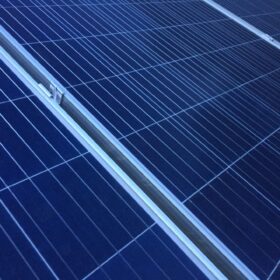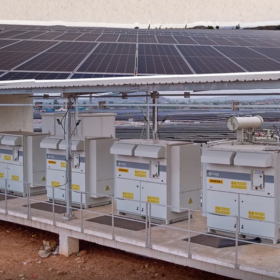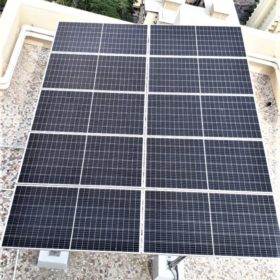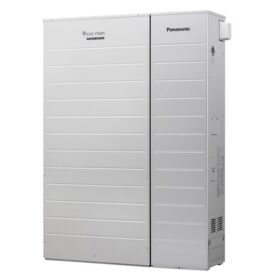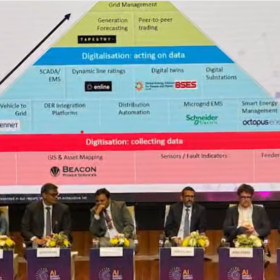Oswal Solar secures 7.46 MWp rooftop solar order under PM Surya Ghar scheme
Oswal Pumps has announced that its subsidiary, Oswal Solar Energy, has secured an order to install 7.46 MWp of grid-connected rooftop solar systems for 3,729 consumers under the PM Surya Ghar: Muft Bijli Yojana.
India expected to install about 42.5 GW of new solar capacity in 2026: JMK Research
India installed around 37.8 GW of solar capacity in CY2025. This comprised about 28.6 GW of new utility-scale solar, a 54.6% increase from 2024, and 7.9 GW of rooftop solar, up 72% year on year. Off-grid additions stood at 1.35 GW, compared to 1.48 GW in 2024.
India installs 7.1 GW of rooftop solar in 2025, up 122% YoY
Residential consumers accounted for 76% of rooftop solar capacity additions in 2025, driven by the PM Surya Ghar: Muft Bijli Yojana program.
From panels to complete energy systems: The evolution of India’s rooftop solar market
Rooftop solar is moving from being a supplementary solution to becoming a central component of India’s energy architecture. The next phase of growth will not be defined by panel installations alone but by how effectively generation is integrated with storage, digital intelligence, and grid infrastructure.
India’s electricity transition unfolds unevenly across states
A new report by IEEFA and Ember finds that India’s electricity transition is unfolding differently across states, shaped by variations in resource endowments, development pathways, and institutional capacities. While some states are already leading in renewable energy deployment and grid readiness, others are building momentum, presenting significant opportunities for accelerated progress through targeted, state-specific policy interventions.
Panasonic debuts fuel cell cogeneration system for PV‑integrated homes
Panasonic has launched a new home fuel cell system for detached houses, designed to boost solar self-consumption through HEMS‑based smart scheduling. The unit generates electricity and heat from gas, supports demand response, and can supply emergency power during outages.
REC conducts live demo of peer‑to‑peer decentralized energy transaction at India AI Impact Summit 2026
During the live peer-to-peer energy trading demo, Arun Singh, a farmer from Meerut (Uttar Pradesh), used a secure, blockchain‑enabled platform to sell surplus solar‑generated electricity directly to Lakshmi, a garment shop owner in Delhi.
ISA unveils global mission to help 120+ member countries fast-track AI-enabled clean energy
The International Solar Alliance (ISA) convened a high-level session at the India AI Impact Summit 2026 to advance global dialogue on the transformative role of Artificial Intelligence (AI) in the clean energy transition.
India’s FY2027 budget shifts focus from renewable deployment to manufacturing, but execution challenges persist, says Wood Mackenzie
Clean energy spending rises 40% to $5 billion as government prioritises CCUS, domestic supply chains and strategic manufacturing. However, execution delays and underutilisation of allocated funds could limit the near-term impact, according to an analysis by Wood Mackenzie.
India’s blueprint for sustainable solar success
By embedding quality benchmarks into procurement and manufacturing incentives, policymakers are ensuring that India’s energy transition is durable, not disposable. The focus has moved from rapid installation to long-term reliability — a sign of sectoral maturity.
